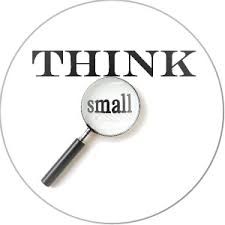 I love that you are part of the Passionate Giving Blog community, and you’re putting into practice the Veritus philosophy and practical advice for major gifts. You are implementing “The Veritus Way” of major gift fundraising on a daily basis and for that, Richard and I, along with our team, are truly grateful.
I love that you are part of the Passionate Giving Blog community, and you’re putting into practice the Veritus philosophy and practical advice for major gifts. You are implementing “The Veritus Way” of major gift fundraising on a daily basis and for that, Richard and I, along with our team, are truly grateful.
There are thousands of others like you who receive our blog in their inboxes. Some of those folks are from billion-dollar non-profits, and some are from one-person development shops. We have folks from all over the world working for many different types and sizes of non-profits.
It’s amazing, really.
Often though, Richard and I receive e-mails and calls from folks who work at small non-profits who say to us that they either can’t start a major gift program or they just don’t have the resources to really grow a major gift program. Then we hear this: “We’re just too small to do this right.”
Our response is, “No, no, you’re just the right size to do this better than anyone.” Here is what I mean. Being a small non-profit allows you to do major gift fundraising in the most intimate, one-on-one way that large organizations can only envy.
You don’t have to be a small organization to be great at major gift fundraising; you just have to “think small.” That’s right. You can be a billion-dollar non-profit (or any size), but you can act and think like a small organization and have a successful major gift program.
Here is what is great about being or “thinking” small:
- You really know your donors. Being small means that most likely you, the CEO, the board and probably most of your staff know who your donors are. That is amazing. They are not just names on a spreadsheet, but real people who are known. You know why they are donors, where they came from and what they want to do.
- Everyone is involved. Because you are so small, everyone in your office most likely participates in working with major donors on some level. While this might seem like a hindrance, it’s actually a blessing because it means everyone understands the importance of cultivating and stewarding donors. Each staff member has built-in empathy for how difficult the work is. I know development directors of small non-profits that put their marketing plans for each major donor on the wall for everyone (ED, Finance and Program, Janitor) to view how they are tracking on strategy.
- Leadership is available. In a small organization the CEO is available to meet with donors, solicit donors, thank and report back to donors; she is available to you. Why? Because in a small organization the CEO or Executive Director knows the importance of directly reaching out to donors. Most of the time the CEO or ED will know your donors very well. This is why she will actually sit down to plot strategy with you. Priceless!
- Reporting back to donors is more effective and personal. When you are small, you are more nimble. Since everyone understands what’s involved in cultivating a major donor, everyone pitches in to help you report on how a donor’s gift made a difference. And because you are small, that impact is generally going to be significant… which donors love! No major gift should be considered a “drop in the bucket.” If you are (or think) small, you will never have that problem. Donors want to feel and know that they are making a real impact.
- Thanking donors has incredible meaning. The small organizations we have worked with seem to have much more creativity when it comes to thanking donors. Why? Because everyone in the organization knows the donor, it becomes so personal. In small organizations the CEO or ED doesn’t think twice about picking up the phone immediately after the check comes in. Staff usually get together to figure out how to publicly thank a donor. I know one small non-profit that had a potluck lunch and invited a few major donors to join them, just to thank them.
So if you are working with a small organization, you have the ability to create an incredible major gift program. No excuses. And if you are working with a medium to large organization, you may be thinking “what about us?”
Well, good question. What about you? Take these five areas I’ve highlighted about the beauty of a small non-profit, and create a small non-profit “mindset” with your larger organization’s major gift program.
Ask yourself, “what can I do to get my CEO or ED more involved with donors?” “How can I really get to know my donors?” “How do I bring together all departments in my organization to understand major gifts?” “How can we make it easier and more effective to thank and report back to donors and cut through the bureaucracy?”
Think small.
Jeff






This blog and advice is right on the mark. The work to keep each person on the team remembering the potential their interaction with the important donor I might mean is so necessary. . I get upset when I hear that we cannot let others in the organization know who the big donors are. Keep pushing us to all be the MGO!
Awesome post, thank you! As a board member dealing with mostly smaller organizations I am tired of hearing “the board should do the fundraising.” Small organizations often can’t afford to hire, or don’t think they can, a fundraising staff much less all the additional mission oriented staff they would like. The sooner you hire someone with the necessary skills to lead fundraising, the better off you will be. The board can help with fundraising, they cannot do the whole job by themselves.
Thank you for this post. We are a small school and have had to release our director due a significant drop in enrollment. Fortunately, we are able to keep our long-term alumni development coordinator and hire an alumni with significant connections to our base. I would like to move this new hire into the director position but feel she needs a quick primer of development techniques. I am also wondering what her title should be until she attains director status. Following your blogs this past year has been very illuminating and your expertise is clearly evident. Any help you could offer would be greatly appreciated.